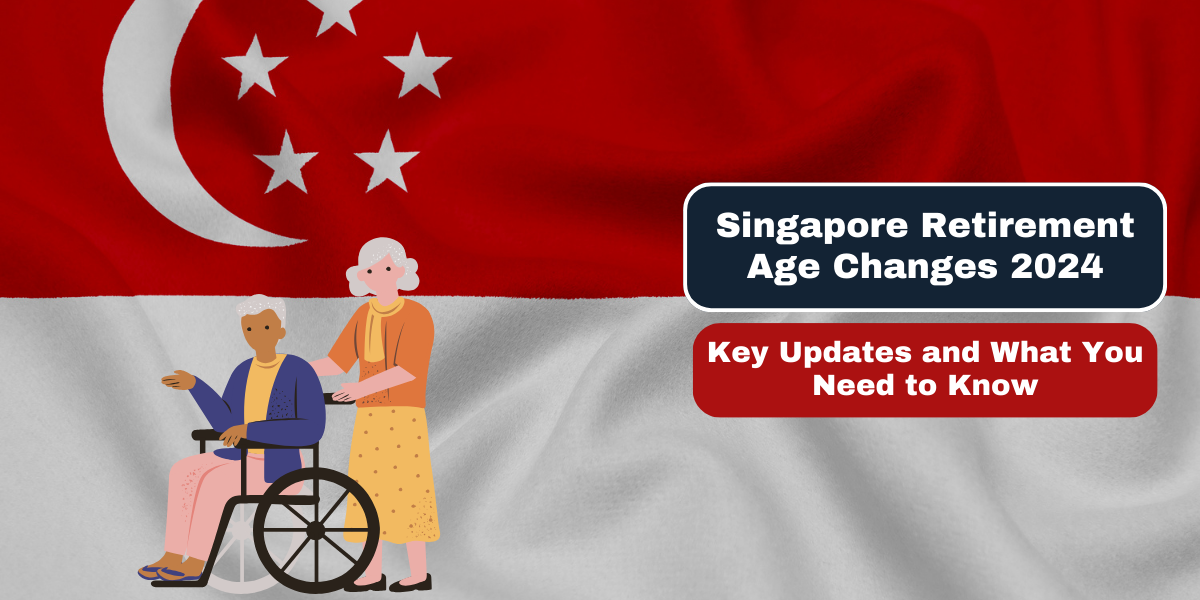Singapore Retirement Age Changes 2024 : Starting in 2024, the Singapore Government will implement significant changes to its retirement age policies, emphasizing the extension of working lives for older employees. This move is designed to address the needs of an aging population while acknowledging the continued value that experienced workers bring to the workforce. By raising the retirement age to 64 and the re-employment age to 69, the government aims to support senior employees who wish to remain in the workforce longer.
These updates will have broad implications for both individuals and employers. Employees will benefit from extended income opportunities and financial stability, while employers will gain from the experience and skills of older workers. However, managing the transition and addressing potential workplace challenges will be crucial for a smooth adaptation to these new policies.
Contents
Overview of Key Changes
The upcoming adjustments to Singapore’s retirement and re-employment ages reflect a growing trend among older workers who wish to stay active in the workforce. By extending the retirement age to 64 and the re-employment age to 69, the government is aligning policy with the desires of senior employees to continue contributing their expertise and experience well beyond the traditional retirement age.
These changes are part of a comprehensive strategy aimed at supporting an aging population. By allowing senior citizens to remain engaged in their careers longer, the policy not only benefits individual workers through extended financial stability but also leverages their valuable skills to address workforce shortages and enhance productivity in various sectors.
Retirement Age Adjustments
I. Increased Retirement Age
- New Retirement Age: The official retirement age will be raised from 63 to 64. This change reflects a broader recognition of the value of senior employees and aims to provide them with additional time to prepare financially for retirement.
- Phased Implementation: The new retirement age will be gradually implemented, with the goal of reaching the target by 2030. This phased approach allows both employers and employees ample time to adapt to the new regulations.
II. Re-Employment Age
- New Re-Employment Age: The re-employment age, which allows employees to continue working beyond the retirement age, will increase from 68 to 69. This adjustment supports those who wish to extend their careers further and helps address the skills gap in various sectors.
- Phased Approach: Similar to the retirement age, the re-employment age will be incrementally adjusted, ensuring a smooth transition for both employees and employers.
Impact on the Workforce
Benefits of the New Policies
- Increased Financial Stability: Extending the retirement age provides additional years of income, helping individuals build a more secure financial future.
- Continued Workforce Contributions: Older employees bring valuable experience and skills to the workplace. Allowing them to work longer benefits businesses and the economy as a whole.
Challenges to Consider
- Generational Gaps: Differences in work styles and technological proficiency between older and younger employees may create friction in the workplace. This issue will need to be addressed to maintain a harmonious work environment.
- Workplace Adaptations: Employers may need to make adjustments to accommodate older workers, such as providing additional training or modifying job roles to better suit their needs.
Legislative and Support Measures
Workplace Fairness Legislation
- Purpose: The Workplace Fairness Legislation aims to foster a supportive and inclusive work environment for employees of all ages. This legislation will help mitigate potential conflicts between different generations and ensure fair treatment.
- Implementation: The legislation will be introduced alongside the retirement age changes and is designed to create a balanced and equitable work environment.
Government Support Initiatives
- Healthcare Grants: To ease the transition into retirement, the government offers healthcare grants to help cover medical expenses for senior citizens.
- Senior Employment Credit: This credit provides financial support to employers who hire or retain older workers, encouraging businesses to value and invest in their experienced employees.
- Future Pension Scheme: An age pension scheme is expected to be implemented by 2026, offering additional financial support based on an individual’s contributions throughout their career. This scheme will particularly benefit low-income and elderly individuals.
Exemptions and Specific Criteria
| Category | Details |
|---|---|
| Exempt Groups | |
| Public Service Personnel | Includes police, military personnel, and commercial airline crew members. |
| Part-Time and Short-Service Employees | Employees working less than 20 hours per week or with less than two years of service are excluded. |
| Criteria for Continued Employment | Details |
|---|---|
| Citizenship and Residency | Must be Singaporean citizens or permanent residents. |
| Employment History | Must have started working with the current employer before age 55 and have at least two years of service by age 63. |
| Health Requirements | Must be in good health. Employers are responsible for evaluating health and performance to meet required standards. |
Conclusion
Singapore’s upcoming changes to retirement age policies mark a major shift in workforce dynamics. By increasing the retirement age to 64 and the re-employment age to 69, the government aims to support its aging population and recognize the ongoing value of older employees. These adjustments reflect a commitment to leveraging the experience of senior workers while addressing the needs of a growing elderly demographic.
However, the transition will present challenges, including potential generational gaps and the need for workplace adaptations. Employers and employees will need to navigate these changes carefully to ensure a smooth integration of different age groups. Staying informed about these updates will be crucial for both individuals and businesses to effectively manage and benefit from the evolving retirement landscape.
FAQs
What is the new retirement age in Singapore for 2024?
The retirement age will be raised to 64, and the re-employment age will increase to 69.
When will the new retirement age be fully implemented?
The new retirement age and re-employment age will be gradually implemented, with full adoption expected by 2030.
Who is exempt from the new retirement age rules?
Exemptions include public service personnel, such as police and military members, as well as part-time employees and those with less than two years of service.






